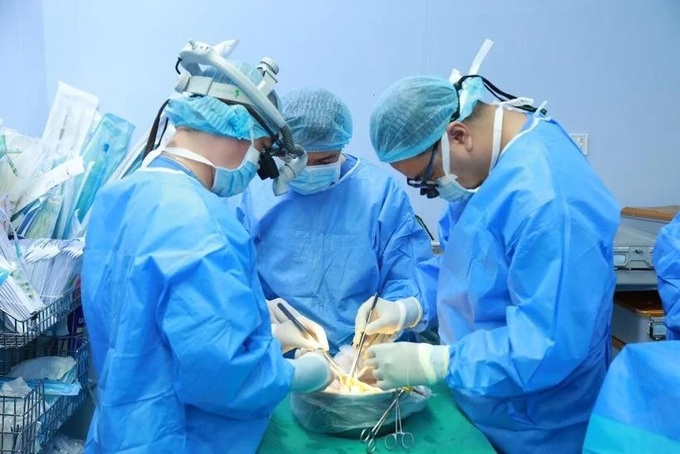
As many as 41 families agree to donate organs and tissues of brain-dead relatives in 2024. - Illustrative image (Photo: VNA)
Dozens of organ and tissue donation advocacy groups have been established, with strong participation of both public and private healthcare facilities, helping to significantly lift the number of individuals registering for posthumous organ and tissue donation, heard a conference in Hanoi on January 7.
Addressing the event, which aims to review efforts to promote organ and tissue donation, and outline relevant orientations in 2025, Deputy Minister of Health Tran Van Thuan reported that 41 families agreed to donate organs and tissues of brain-dead relatives in 2024, providing life-saving opportunities for patients in critical conditions, creating miracles of organ transplantation in the country.
This is a record figure for Vietnam to date, he noted, expressing his belief that, with the proactive and effective efforts of the Vietnam Tissue and Organ Donation Advocacy Association and its affiliated offices, this number will continue to grow steadily.
In 2024, the field of organ transplantation also left a strong mark when it was recognised as one of the outstanding events in Vietnamese medicine, Thuan said.
Accordingly, the first combined heart-liver transplant in the country, and transplanting a trachea segment from a brain-dead donor - a rare technique both in Vietnam and the world, were performed in the year. Additionally, three lung transplants were completed, bringing the total number of lung transplants to 12 since the first one in 2017.
He also mentioned difficulties in the field, saying that there is still no mechanism or policy in place to support activities related to counselling for organ and tissue donation from brain-dead or cardiac-dead individuals.
In addition, the costs for resuscitation, diagnosing brain death, collecting, preserving, coordinating, and transporting organs and tissues, as well as the expenses related to transplant procedures, have not been uniformly established, bringing challenges for hospitals in settling these costs, particularly for those involved in the organ harvesting process, he added.
The official said the healthcare sector needs to continue refining relevant policies, strengthen IT-based solutions and speed up digital transformation in managing the donation registration system, to ensure efficiency, transparency, and fairness. He also underlined the necessity to establish synchronous data systems connecting donation-transplant centres, towards making full use of donated organs and preventing any wastefulness.
Statistics showed that, starting with the first kidney transplant in June 1992, as many as 9,516 transplants were performed by the end of 2024, with the participation of 27 hospitals and medical centres.
Over the last three decades, approximately 1,000 organ transplants were successfully performed annually, the highest in Southeast Asia, the official said, however, noting that this rate does not meet the public's demand for organ transplants./.




















